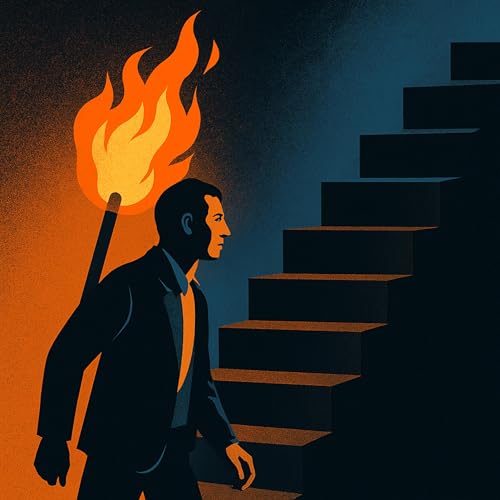
Hate Speech, Free Speech, and the Ladder of Escalation
Échec de l'ajout au panier.
Échec de l'ajout à la liste d'envies.
Échec de la suppression de la liste d’envies.
Échec du suivi du balado
Ne plus suivre le balado a échoué
-
Narrateur(s):
-
Auteur(s):
À propos de cet audio
How history, law, and theology warn us against turning words into weapons
By Chris Abraham for Substack
Some mornings I surprise myself. I wake with the smell of coffee in the apartment, the building still quiet, and realize I’ve become a proselytizer for an old story. Not long ago, I argued about anchor text or attribution models. Now, I listen to daily Gospel readings on Hallow, sit with Jeff Cavins’ reflections, and quote John and Luke in comment threads. Nobody in my circle would have bet on this turn. Yet here I am, defending something I once mocked: the right of even ugly speech to exist without being carted off by the mob.
The spark for this essay was a viral clip: a student casually saying, “we should bring back political assassinations.” The internet responded as it always does—doxxing, firings, denunciations, and calls for permanent punishment. A remark became a hunt; the hunt became a storm. What we’re rediscovering is that escalation has no natural ceiling.
History offers the bluntest illustration. A single pistol in Sarajevo set in motion alliances and mobilizations in 1914. Gavrilo Princip’s assassination of Archduke Franz Ferdinand didn’t just trigger World War I—it created conditions that made World War II almost inevitable. Versailles punished, humiliated, and planted the seeds for something worse. The pattern is clear: brittle systems plus retributive logic equals long violence.
We are running a similar ladder in civic life. A tweet becomes a pile-on; a pile-on becomes a firing; firings become professional exile. The law distinguishes incitement from expression, but private power—employers, platforms, angry publics—enforces with brutal efficiency. Make someone unemployable and many will cheer.
I defend the toleration of ugly speech not because I like ugliness, but because civilization is the art of channeling impulses into procedures. The difference between courts and mobs, between ballots and torches, is not taste. It is survival. A messy forum beats clean annihilation.
That’s why I find myself defending a man—call him a public conservative—whose rhetoric makes even me squirm. Friends call him a paid agitator. But he did something useful: he forced people to decide what they believed about sin and responsibility. The gospels say: “Go, and sin no more.” In today’s civic grammar, calling sin “sin” lands like an unforgivable insult.
Listening to the liturgy daily doesn’t make me devout; it makes me exacting. Mercy without responsibility collapses into indulgence. And politics without procedure collapses into violence. Whether it’s migrants, surges, or social panics, escalation follows predictable dynamics: fear, backlash, and harder law.
Revolutions show the same pattern. Marx, Mao, and Che all preached rupture. History showed feedback loops: repression breeds resentment, resentment breeds new radicalism. Quick purges promise a better world but usually deliver cycles of blood. The duel and the frontier brawl remind us: humans answer offense with violence. Today’s equivalents are doxxing, canceling, and algorithmic ruin. Different weapons, same code.
The temptation is to believe pauses create peace. Versailles was a pause. Interwar years were a pause. Ceasefires often function as rearming intervals. Punishment without reconciliation is not resolution—it is staging ground for the next round.
That’s why my call is simple: protect the square. Let ugly arguments happen in public, and resolve them through law, not purges. Reserve punishment for credible threats, not unpopular speech. Teach platforms and employers to resist mob fury. Absorb offense without turning it into capital. History warns us: moral cleansing campaigns can harden into decades of conflict.
Maybe that’s why I can listen to the Gospel in the morning and still defend free speech at night. Ugly words are less dangerous than the torches we light to silence them. Once the torches are lit, the stairs back down are hard to find.


